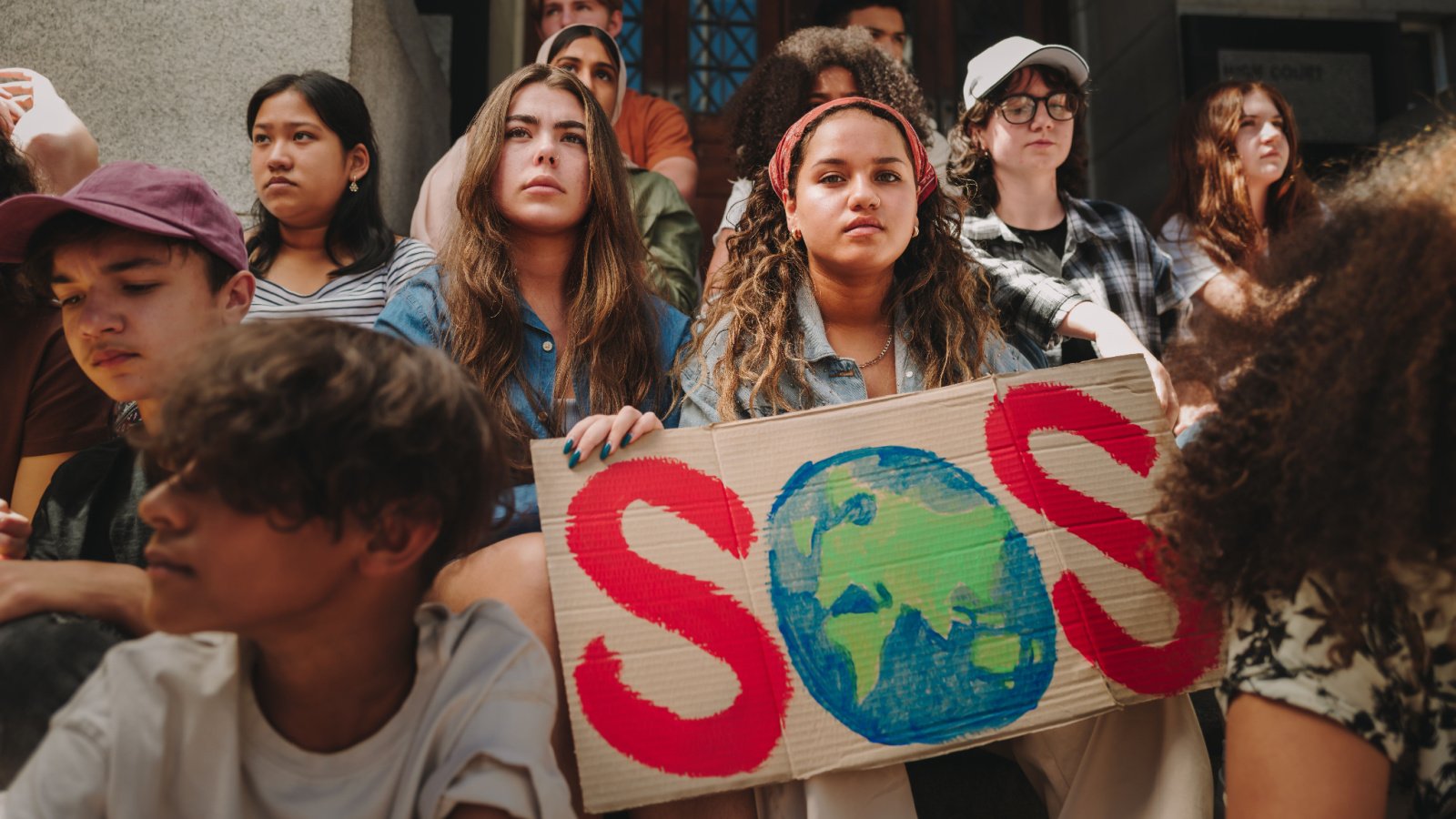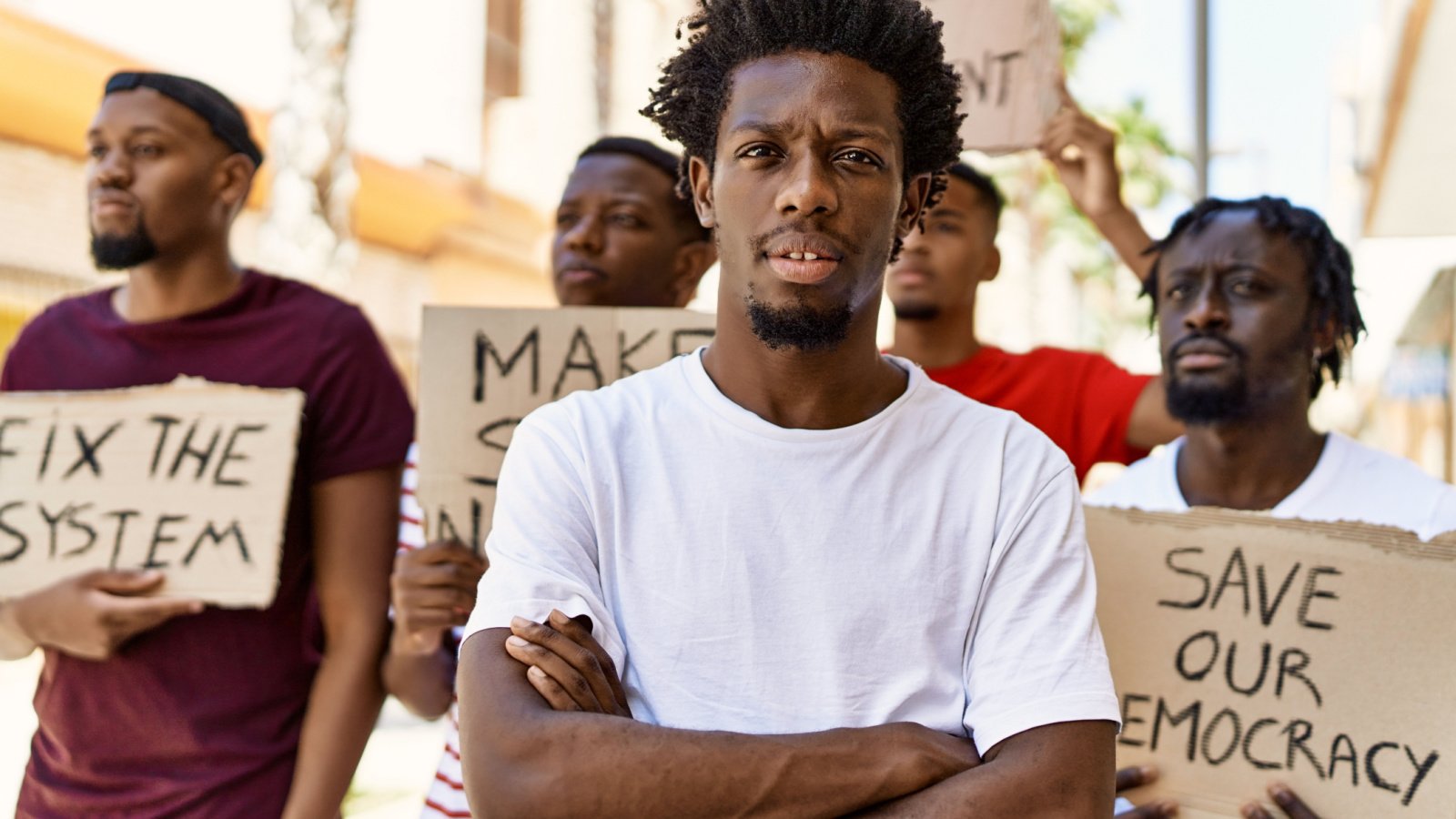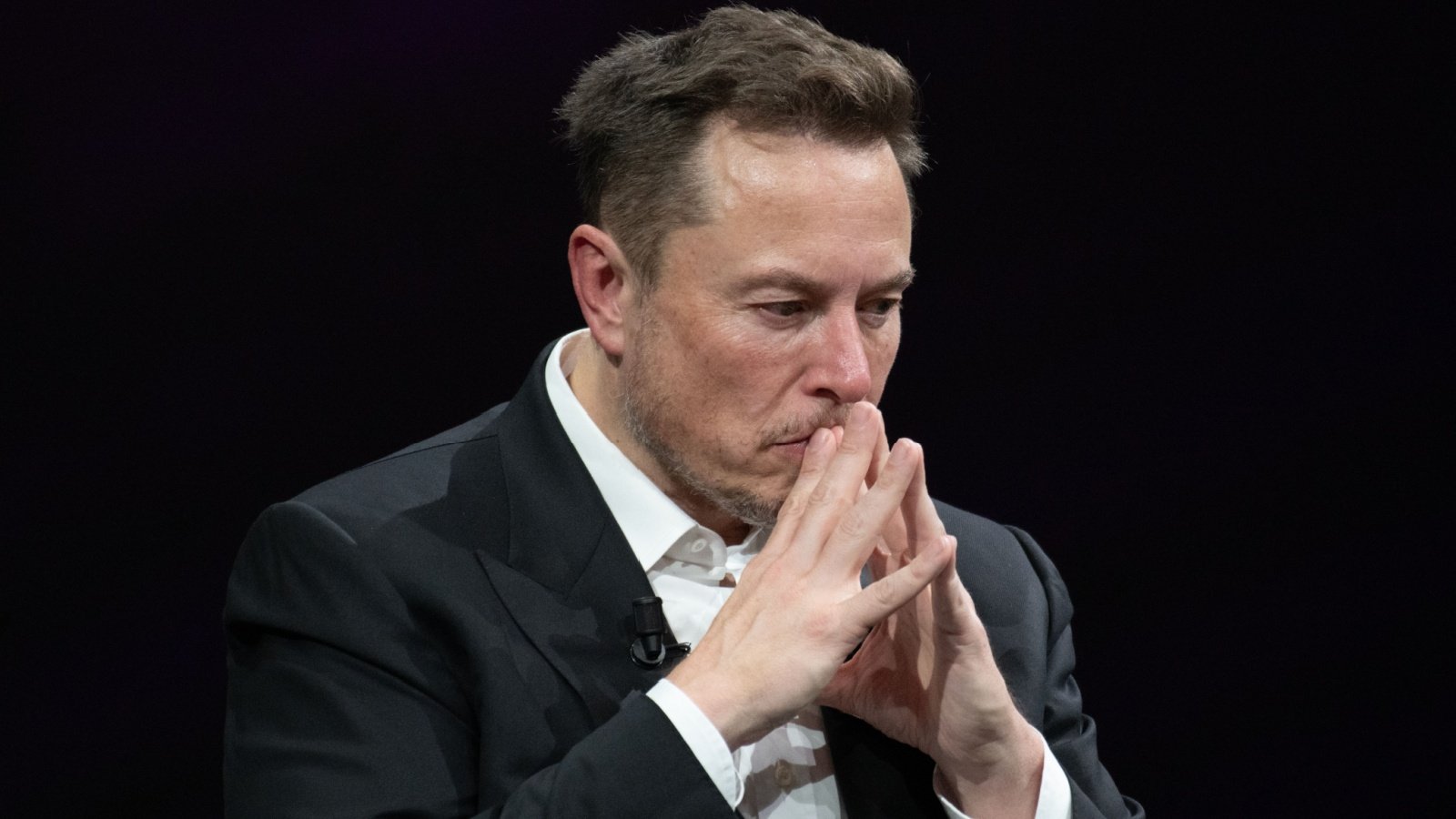Gen Z has redrawn the boundaries of what’s acceptable, challenging norms and reshaping society’s outlook. Their bold stance on environmental, social, and technological issues is forcing a collective reevaluation. With their influence, we’re witnessing a paradigm shift in how we live, work, and interact.
Ignoring Climate Change

Climate change denial is no longer acceptable. Gen Z has brought environmental issues to the forefront, insisting on immediate action and sustainable practices. They’ve transformed eco-consciousness from optional to essential.
Overlooking Mental Health

Mental health is now at the center of societal conversations, thanks to Gen Z’s advocacy. They’ve dismantled taboos, promoting openness and support over silence. Society has shifted towards prioritizing mental well-being and understanding its impact on overall health.
Using Plastic Straws

Plastic straws have become a symbol of wasteful consumption. Gen Z’s environmental activism has led many to switch to reusable or biodegradable alternatives. This generation has made it clear that convenience can’t come at the planet’s expense.
Ignoring Diversity

Diversity and inclusion are no longer optional; they’re requirements. Gen Z demands representation and equality across all sectors of society. Their push for a more inclusive world has made ignoring diversity an outdated notion.
Staying Silent on Social Issues

Silence on social and political issues is seen as complicity. Gen Z encourages vocal support for justice and equality, driving societal change. They’ve shown that staying informed and engaged is crucial in shaping a fairer world.
Wasteful Fashion Consumption

The fast fashion cycle is being challenged by Gen Z’s preference for sustainable and ethical brands. They’ve popularized thrifting and upcycling, demonstrating that style doesn’t have to harm the planet. This generation is redefining fashion norms to be more environmentally friendly.
Unrestricted Screen Time

Unmindful screen time is on the decline as Gen Z advocates for digital well-being. They emphasize the importance of disconnecting and the value of real-world interactions. This awareness has led to a more balanced approach to technology use.
Disregarding Privacy Online

Gen Z values digital privacy and is cautious about the information shared online. They’ve raised awareness about data protection, prompting a reconsideration of online behaviors. Society is learning to navigate the digital world more securely, thanks to them.
Accepting Workplace Rigidity

The traditional 9-to-5 office model is being reevaluated. Gen Z values flexibility, work-life balance, and mental health, influencing corporate cultures worldwide. They’re leading the charge towards more adaptable and humane working environments.
Single-Use Plastics

The fight against single-use plastics has gained momentum with Gen Z’s influence. They advocate for alternatives and push for bans on these pollutants. Their activism is steering society towards more sustainable consumption habits.
Passive Learning

Gen Z prefers interactive and hands-on learning over passive educational methods. They champion the use of technology and real-world experiences in education. This approach is reshaping teaching methods to be more engaging and effective.
Gender Norms

Rigid gender norms are being dismantled by Gen Z’s understanding of gender fluidity. They advocate for the freedom to express one’s identity beyond traditional binaries. Society is becoming more accepting of diverse gender expressions, thanks to their influence.
One-Way Communication

Gen Z demands a two-way conversation, especially from brands and institutions. They expect to be heard and to influence the products and policies that affect their lives. This has led to more participatory and responsive communication strategies.
Ignoring Local Communities

There’s a renewed focus on supporting local businesses and communities, driven by Gen Z’s values. They understand the importance of sustainable economies and the impact of their spending. Society is shifting towards more mindful consumption, valuing local over global.
Unsustainable Travel

Gen Z promotes sustainable travel and is conscious of the environmental impact of tourism. They seek experiences that are respectful of local cultures and ecosystems. This perspective encourages more responsible and mindful travel practices.
Disposable Fashion

Gen Z’s push against disposable fashion is reshaping industry standards. They favor quality and sustainability over fast fashion’s fleeting trends. This shift is leading to a more conscious approach to consumption and production.
Excessive Meat Consumption

Gen Z is leading the way in reducing meat consumption, aware of its environmental and ethical implications. Plant-based diets are becoming more mainstream as they champion sustainability in eating habits. This change encourages the reevaluation of dietary norms.
Traditional Learning Paths

The traditional college degree path is being questioned by Gen Z’s pursuit of alternative education and career paths. They value skills and experiences over formal credentials, prompting a broader acceptance of diverse educational journeys.
Ignoring Indigenous Rights

Gen Z amplifies the voices of Indigenous communities, advocating for their rights and sovereignty. They stress the importance of listening to and learning from Indigenous knowledge, especially in environmental conservation. This generation is pushing society to recognize and rectify historical injustices.
Single-Function Devices

Gen Z’s preference for multi-functional technology is making single-purpose devices obsolete. They seek efficiency and versatility in their gadgets, influencing the tech industry’s direction. This shift reflects a broader move towards minimalism and functionality.
Linear Career Paths

The concept of a linear career path is fading as Gen Z embraces flexibility and the pursuit of passion. They’re more likely to change jobs or fields in search of fulfillment and growth. This adaptability is challenging traditional career models and encouraging a more dynamic workforce.









Darüber hinaus nimmt das Casino am Spielerschutzprogramm teil, das darauf abzielt,
Sucht zu verhindern und Unterstützungsdienste für diejenigen anzubieten, die mit Glücksspielproblemen zu
kämpfen haben. Das Fehlen einer dedizierten mobilen Anwendung deutet darauf hin, dass die Spieler die physische Location persönlich
besuchen müssen, um das von der Spielbank Bad Zwischenahn angebotene Spielerlebnis zu
genießen. Die Spielbank Bad Zwischenahn bietet nur ein physisches Spielerlebnis an ihrem Standort,
ohne Online- oder digitale Dienstleistungen. In Bezug auf
die Spielkategorien präsentiert die Spielbank klassische Tischspiele wie Roulette, Blackjack und Poker,
neben elektronischen und hybriden Live-Spielen. Wir freuen uns,
Ihnen ein unvergessliches Spielerlebnis zu bieten, das Ihnen den Atem rauben wird.
Mit über 180 Spielautomaten, klassischen Tischspielen und modernen Terminal-Hybrid-Systemen verspricht jeder Besuch Aufregung
und Vielfalt. Dieses ikonische Glücksspielziel bietet ein authentisches Erlebnis,
das traditionelle Tischspiele mit modernen hybriden Live-Elektroniksystemen verbindet.
Alle Tischspiele werden von Live-Dealern durchgeführt, und Spielautomaten werden unter staatlicher Casinoaufsicht geprüft.
100% bis zu 1.000 € + 200 Freispiele So können Sie sofort mit dem Genuss der klassischen Tischspiele, modernen hybriden Live-Elektro-Spiele und der malerischen Umgebung beginnen.
Stammgäste können sich auch auf den Ladies’ Day freuen, an dem Frauen am ersten Mittwoch jedes Monats freien Eintritt genießen.
References:
https://online-spielhallen.de/iwild-casino-cashback-ihr-weg-zum-verlorenen-geld-zuruck/
Join our Sleep Care Community — a trusted hub of sleep health
professionals, product specialists, and people just
like you. This means that if you have spent around 20 minutes in bed
and are having trouble sleeping, it is best to get out of bed and do something relaxing in low light, and then return to bed once you feel tired.
Ideally, you want to avoid an association between your bed and frustration from sleeplessness.
When doing work in your bed, it’s harder to wind
down at night without thinking about tomorrow’s to-do list.
You want a strong mental association between your bed and sleep, so try to keep
activities in your bed limited strictly to sleep and sex.
If you have a comfortable bed, you may be tempted to spend your leisure time in it, but this can actually cause problems at bedtime.
In rarer cases, a few players mentioned being harassed by the chat support, with one
incident highlighting that the chat support proposing you offers felt
intrusive. The avantgarde casino review reveals a platform that manages to balance modern technology with traditional gaming values.
Many players have finished a 10 no deposit promotion and are now reaping the rewards of these innovative offers.
In today’s article, we dive into how the avantgarde
casino has revolutionized the industry with innovative promotions and
offers. Avantgarde Casino stands out for its top-tier gameplay,
including provably fair crash games and a vast slots portfolio from leading providers.
This licensed framework provides players with a secure environment in which
to enjoy their gaming experience.
References:
https://blackcoin.co/goat-spins-casino-in-australia-real-money-casino-wins/
The central quest of the game consists of about 50 to 60 hours of play, while
the full game, including all side quests, is esti…
If you are a game or software developer and you want to submit your product to us – please refer to
our Submit Program page. In case when we are not able to get in touch
with the developer for a reasonable time
– we’ll proceed with publishing the listing.
Just show your Crown Rewards Card when you pay or play and you can start earning Points, which you can redeem for Crown experiences like dining,
gaming, hotel stays and much more. From acclaimed restaurants and award-winning hotels to world-class gaming and endless entertainment, Crown Rewards helps you to discover the
world of Crown – and be rewarded. Crown Perth offers a spectacular array of
world-class restaurants and fine dining experiences.
References:
https://blackcoin.co/candy96-casino-in-australia-real-money-play-for-cash/
online australian casino paypal
References:
http://www.maxes.co.kr/bbs/board.php?bo_table=free&wr_id=2751050
casino mit paypal einzahlung
References:
https://jobsrific.com/employer/best-paypal-friendly-poker-platforms-in-2025/